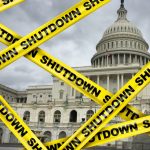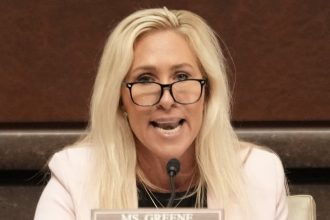As Senate Democrats united to pass a budget aimed at reopening the government on Monday night, they faced criticism for enacting what many deem the largest cut to Medicaid in U.S. history. This budget has been linked to the funding of substantial tax breaks for the wealthiest Americans. As this political maneuver unfolded, a significant setback emerged for wealthy travelers: private jets are reportedly prohibited from landing at 12 major airports across the United States.
Ed Bolen, the president and CEO of the National Business Aviation Association (NBAA), a prominent lobby for the private aviation sector, voiced his alarm on Sunday. In a press release, he highlighted additional flight restrictions that would effectively shut down business aviation operations at the aforementioned airports. Bolen emphasized that this development disproportionately affects general aviation, an industry that employs over a million people, contributes $340 billion to the economy, and facilitates countless humanitarian flights daily.
In a different light, renowned French economist Thomas Piketty has expressed that using private jets should be viewed as a visible penalty for the wealthy due to their disproportionate role in climate change. He argues that banning private jet travel would not only challenge the elite to bear their fair share of social responsibility but also engage lower-income individuals in broader economic discussions. “We have to try to do everything we can to convince these groups that the people at the top are paying their fair share. You have to start right at the very top, [with] people who would take a private jet,” Piketty stated.
On the same day, President Donald Trump took to Truth Social to criticize air traffic controllers who were not working due to the government shutdown, suggesting that their pay could be “docked”. He added that those contemplating taking future time off should resign, asserting they could be swiftly replaced by individuals he deemed “true Patriots” ready to operate state-of-the-art equipment that is currently being acquired.
The future of private jet travel remained uncertain late Monday night as the Senate bill moved to the House for consideration. Many House members were not present in Washington, D.C., stirring concern over the timeline. Speaker Mike Johnson indicated that representatives had a limited window of approximately 36 hours to return before the situation evolved further.
The NBAA has pointed out that House members who rely on private jets will find themselves unable to land at Ronald Reagan Washington National Airport, as it is among the 12 airports currently imposing the ban on private aviation. The complete list includes airports known for serving affluent travelers and prominent corporate executives.
The broader impact of these restrictions could ripple through the private aviation industry. Stakeholders worry about the economic fallout, particularly as general aviation encompasses services ranging from corporate travel to crucial humanitarian missions. With the potential for a prolonged shutdown coupled with stringent regulations, industry advocates fear job losses and a reduced economic footprint.
As the political environment surrounding government funding and budgetary decisions continues to evolve, the situation for private aviation will need close monitoring. How this dilemma resolves could set precedent for future governmental operations and the intertwined fate of private sector interests with federal mandates.
While the current legislation was primarily a solution to the shutdown predicament, its ramifications for the aviation sector reflect broader social themes—economic inequality, environmental responsibility, and the evolving role of government in regulating industries significantly influencing society. The coming days will be pivotal as House members return to deliberate the larger implications of the proposed budget and its impact on private aviation and beyond.








